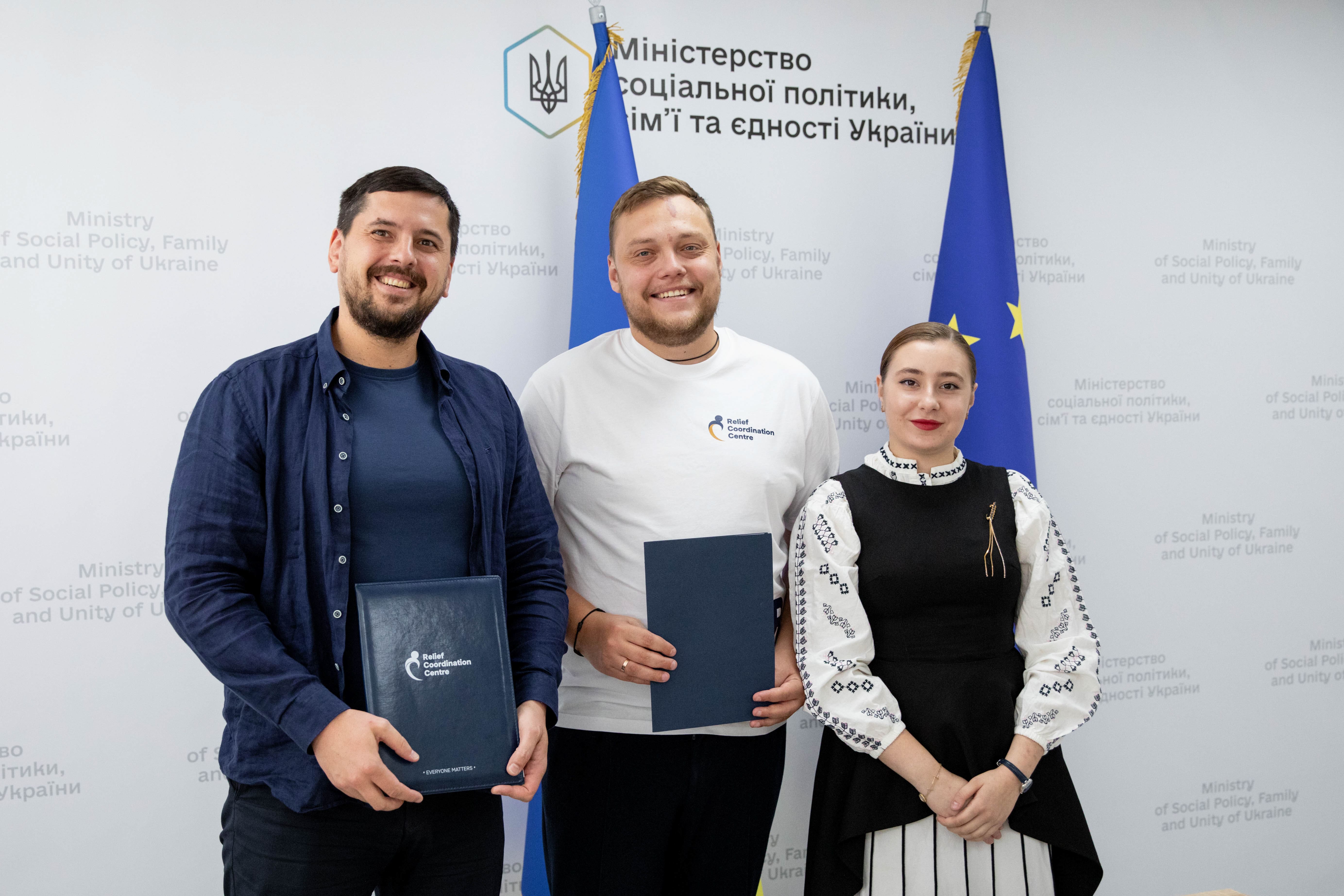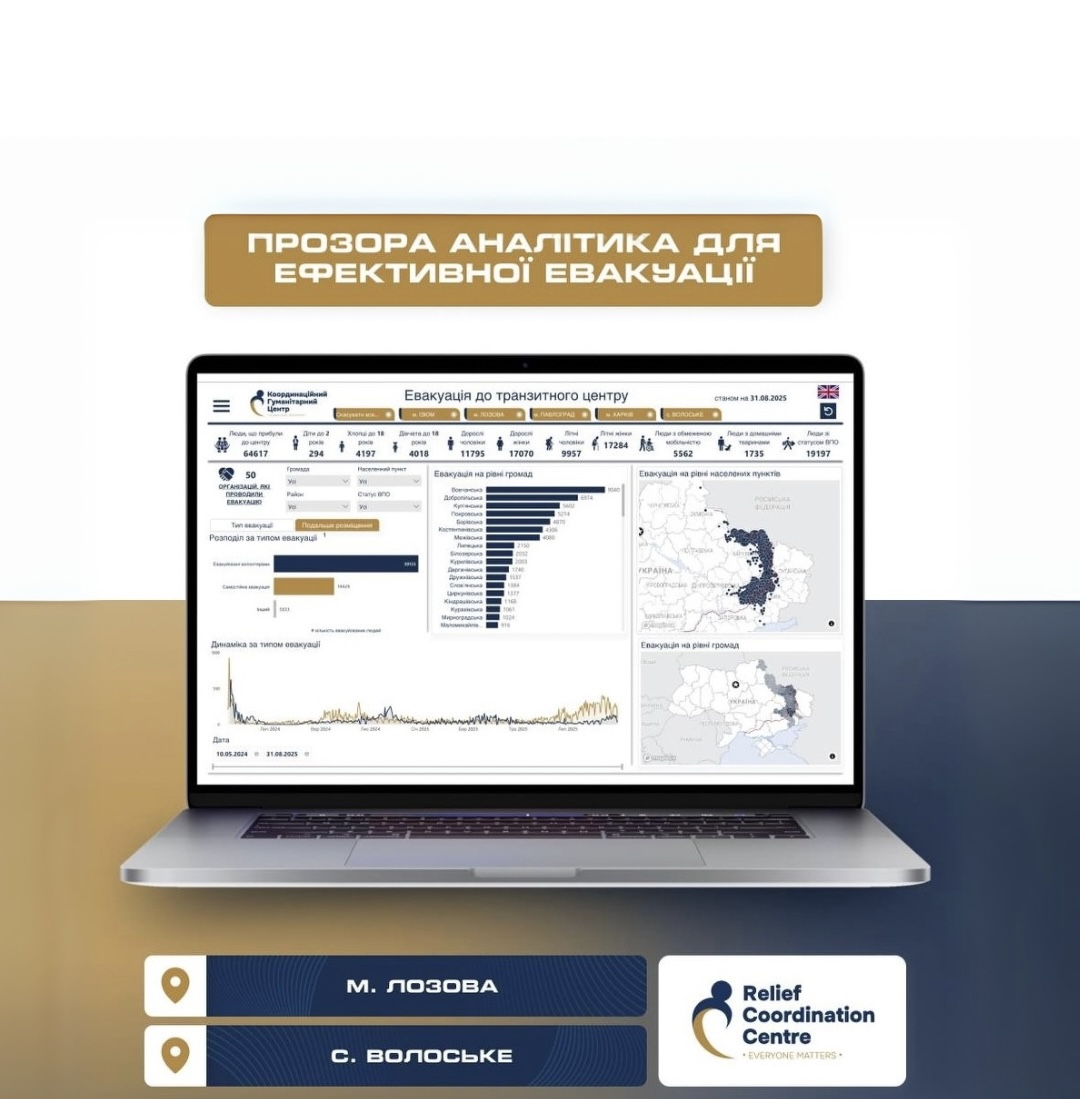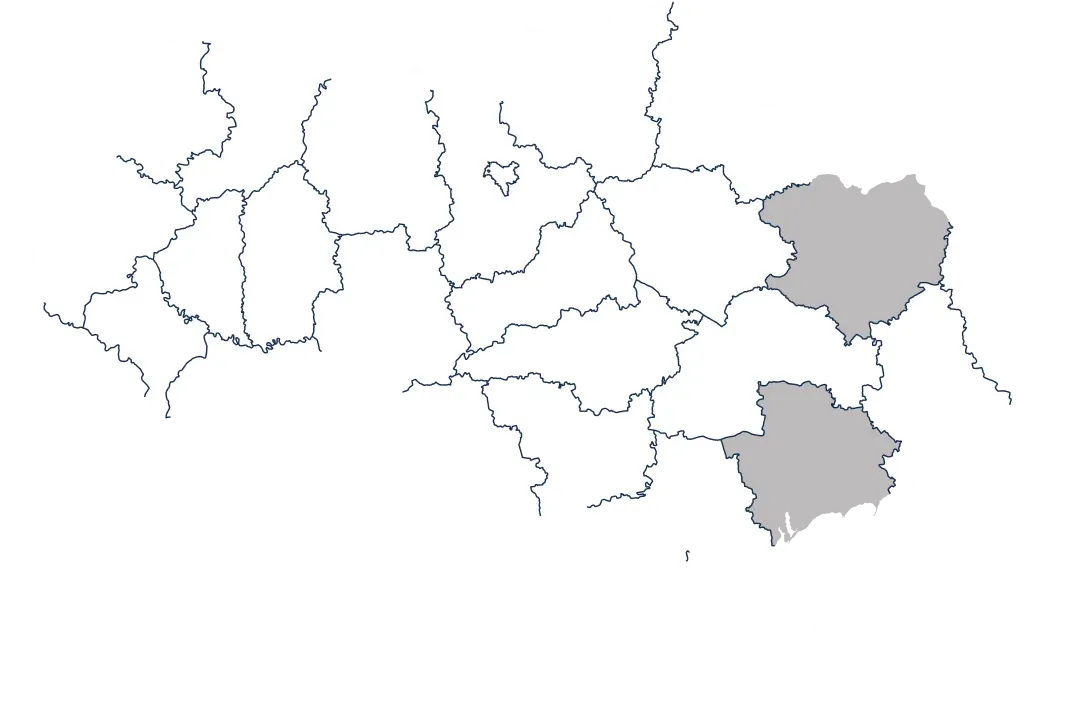Za
Humanitarian Respond:
+10 572т
Of food delivered
+6 666т
Of hygiene products delivered
+43 282
Completed requests
+6 146
People are involved in trainings
Our services:
RCC news:

The Ministry of Social Policy of Ukraine and the Charitable Organization Relief Coordination Centre sign a Memorandum of Cooperation
The Ministry of Social Policy, Family and Unity of Ukraine together with the Charitable Organization Relief Coordination Centre (RCC), have signed a Memorandum of Cooperation. The key goal is to develop a partnership and use the analytical data from the RCC to coordinate evacuation processes in eastern Ukraine.
The collaboration will include:
Providing the Ministry with up-to-date information on the dynamics of evacuation at Transit Centers.
Using analytical data to make timely management decisions.
Strengthening coordination between government structures and humanitarian organizations.
The response from the state and the charitable sector to the biggest challenge of the war: mass evacuations
Today, Ukraine is facing one of its most serious challenges, with a significant increase in evacuation dynamics in the East. Every day, thousands of people are forced to leave their homes due to military actions and danger. The greatest pain and concern for these people is uncertainty, as they don’t know where they will be able to stay, who will support them in the first days, and whether they will be left alone with their vulnerability. This partnership should become a new stage in the development of a systematic approach to supporting people forced to leave their homes, as well as a milestone for the entire charitable sector in Ukraine.
Yevhen Koliada, who chairs the Relief Coordination Centre, explained the organization’s main goal, stating:
Our main mission is to help those who are forced to evacuate. And our main task is to help the state and the international humanitarian community make the evacuation process fast, safe, and dignified. We want every person who has been forced to leave their home to receive not only a sense of support but also confidence in tomorrow. This is why we are also developing digital solutions that have already proven their effectiveness and help to improve the coordination of evacuation missions, bringing together the efforts of the state, the humanitarian sector, and international partners.
Reference: The Charitable Organization Relief Coordination Centre
The organization focuses on coordinating and harmonizing the actions of humanitarian missions and organizations in Ukraine. The RCC team, in partnership with Renome Smart, is developing unique digital tools for the charitable sector. The organization's main resource is up-to-date analytical information that helps daily:
Distribute donor resources effectively.
Avoid duplication of aid.
Ensure a timely response to people's needs.
Through this work, the RCC is establishing new standards of coordination in Ukraine's charitable sector, increasing the transparency, responsiveness, and effectiveness of humanitarian support.
11.09.2025

Updated Transit Centers Dashboard: New Locations and Enhanced Opportunities for Coordination
The Charity Organization Relief Coordination Centre has presented an updated version of the Transit Centers Dashboard, which now includes two new locations: Lozova and Voloske.
This tool was developed to provide humanitarian organizations and international partners with comprehensive and up-to-date information on the needs and pace of evacuation. The dashboard enables users to:
analyze the dynamics of population displacement from frontline areas;
make faster decisions and allocate resources more efficiently;
ensure transparent coordination among all involved organizations.
The updated analytics support better planning of humanitarian assistance and allow for a rapid response to emerging challenges, making the aid process more systematic and effective.
02.09.2025

Data and Analysis for International Humanitarian Response
The Charitable Organization “Relief Coordination Centre” systematically publishes reports on ReliefWeb — the leading humanitarian information platform managed by the United Nations Office for the Coordination of Humanitarian Affairs (OCHA). ReliefWeb enables humanitarian organizations to transparently share their activities, statistical reporting, situational assessments, and analytical insights.
As of today, RCC has published 12 reports on the platform.
We actively collaborate with a wide range of local and international partners. Our team systematically collects, verifies, and analyzes data related to humanitarian needs of affected populations, the condition of community infrastructure, access to basic services, and ongoing or planned humanitarian interventions in Kharkiv and Zaporizhzhia regions. Based on this information, we develop comprehensive analytical products that form the basis for our reporting.
Our publications on ReliefWeb also serve an advocacy function — raising awareness of urgent humanitarian issues at the international level and highlighting the critical role of local organizations in crisis response. The reports include verified data, case studies, and practical recommendations, offering valuable insights for donors, humanitarian actors, and other stakeholders.
01.06.2025
















